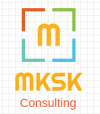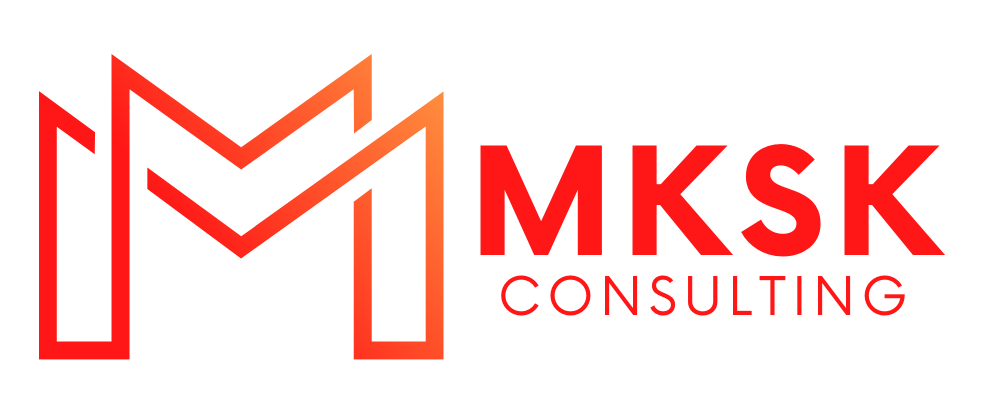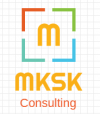Discover how HR can engage all of your employees globally with a single, comprehensive human resources solution

Let’s face it: Globalization is affecting every core business activity, from supply chain and customer engagement to regulatory reporting and talent attraction and retention. Traditional HR technology hasn’t been able to rise to meet the evolving needs of business. The deployment of multiple HCM systems has weakened core HR functions for many companies. Inconsistent and inaccurate data have plagued payroll and benefits reporting, in addition to more strategic efforts, such as workforce planning and career development. As a result, global corporate culture is not defined or supported across local regions, and the workforce remains unengaged. Naturally, 40% of IT and business executives who support HR plan to use fewer vendors, citing improved maintenance, support, and integration as the top drivers.1But this consolidation is only one piece of the puzzle. To sufficiently help a global business to thrive, a company’s HCM system must balance centralized management and local considerations; provide managers with accurate, actionable analytics; possess a consumer-grade user experience that keeps employees engaged; and be flexible enough to support any business initiative.
Expanding globally and making the most of your global workforce can be an effective business strategy for companies of all sizes. However, to remain competitive, organizations must manage their operations efficiently while adapting to local laws and requirements, also known as operating in a “glocal” fashion. “[HR directors’] functions are still not as globally integrated as many of the other functions, so they shall continue to globalize more and more of their people management processes,” says Paul Sparrow, emeritus professor of international human resources management at Lancaster University Management School.2But local responsiveness will be paramount: “There will be much more political pressure on HR directors to show that their organization does a lot of localization, transferring more skills and operations into host country operations.” This is easier said than done. What’s promising is that 70% or organizations already have a Shared Services delivery model, which makes them twice as likely to be viewed by all levels of management as contributing strategic value, according to a recent Sierra-Cedar survey. The same report noted the following findings:
• Organizations that roll out higher levels of ESS support along with a Shared Service center Help Desk application, on average, serve 47% more employees per HR Administrative staff headcount.
• Companies that implement self-service technology within a Shared Services function with HR Help Desk technology, and provide Mobile-enabled ESS features, serve 60% more workforce per HR Administrative staff.
• Over 50% of organizations are sharing some level of Workforce Management and Talent Management applications, and 41% of organizations share Data Privacy work within their Shared Service centers.
• There’s an increasing focus on organizations looking for Mobile Help Desk solutions to provide employees with 24×7 access to their critical HR information. A unified HR system in the cloud lets you eliminate disparate systems and align your HR processes and reporting worldwide—ensuring HR process and data consistency. To ensure efficient local operations, features such as entire system translations, data protection support, local business rules, country payrolls, and compliance reporting are crucial. Highly configurable processes are also needed to simplify quick adaptation to legislative and organizational changes—without causing disruption to your business.
OPTIMIZE HR WITH DATA-DRIVEN DECISION-MAKING
In the past, HR primarily supported the administrative side of human resources – processing new hire paperwork and vacations for employees. However, today HR professionals are increasingly expected to take on a more strategic role in the business—finding ways to optimize the workforce and plan for the future. And this strategic duty encompasses both large-scale organizational changes—such as mergers and acquisitions, business expansions, and reorganizations—and ongoing evaluation of both team and individual performance. So how does this work exactly? Analytics, role-based dashboards, and ad hoc reporting capabilities can be embedded throughout a modern HR system, with relevant information on each screen linked to transactions and decision points. This is not just reporting in the traditional sense, but advanced analytics using data from many sources, such as multiple HCM modules and non-HCM applications, historical snapshots, and complex calculations such as skill-gap analysis and head count movement. Additionally, you can consolidate and analyze large amounts of data across multiple organizations to create a benchmarking tool. Then, you’ll know exactly how well your organization is doing relative to industry KPIs and can address operational areas that fall below industry average metrics. With advanced analytics, you can readily answer critical questions about your workforce and determine what actions will align your talent strategies to business objectives. If the most successful organizations are any indication, HR analytics and business intelligence are becoming indispensable. Sierra-Cedar reports that all three of its high-performing categories—Top Performers, Talent-Driven, and Data-Driven organizations—are more likely to conduct enterprise-wide planning than other groups.
BE ACCESSIBLE, FLEXIBLE, AND SCALABLE
Easy-to-use, online consumer applications have raised the bar for employee expectations of the systems they use at work; they want self-service applications that let them access and share information quickly. With a unified HR platform in the cloud, everyone in your organization can enjoy a consistent user experience with a system that is simple, flexible, and intuitive. The importance of an intuitive, inviting user experience cannot be overstated, with 47% of employers viewing a lack of employee engagement as a top business pressure, according to an Aberdeen study.4 A company’s ability to talk SMAC—or the social, mobile, analytics, and cloud technologies leading the new “connected workforce”—is quickly becoming essential to capturing and engaging the millennial workforce.5 It’s no surprise then that global organizations are increasingly moving to the cloud systems, although at a slower rate when compared to those operating in only one country.
PERFECTING EMPLOYEE ENGAGEMENT
In the world of HR, many of us talk about employee engagement, and the intrinsic link between engagement and productivity is well understood. But how many of us truly understand the reasons why? To find out, the market research agency Kantar TNS carried out 4,706 interviews across 20 countries globally between April 26 and May 11, 2016. All respondents were fulltime employees of companies with 250 or more personnel. • The right leadership is vital — Less than half of respondents said their leaders were approachable and inspire confidence. And only 48% believe in and support the company’s direction. • Performance reviews are mostly unsatisfactory—A mere 47% felt they receive recognition for a good job, while only 36% said their most recent review reflected the views of their peers. • Talent management is due for a revamp—Only 39% enjoy online and collaborative tools for training, with the lowest number among blue collar workers. Perhaps most worrisome is that 41% see an equal opportunity for advancement, but the most telling for attrition rates is that only 43% see active encouragement for promotion from within.
A GLOBAL HR SYSTEM BUILT FOR BUSINESS
The latest Sierra-Cedar HR Systems Survey reveals how an integrated cloud system aligns with a successful enterprise business strategy:7 • High Cloud organizations were twice—sometimes three times—as likely to feel that their HR applications were always meeting their business needs in all categories. • There is no doubt that fewer applications and increased integration facilitate more data cohesion and better User Experiences. • Organizations which have their HRMS, Payroll, Workforce Management (WFM), and Talent Management (TM) solutions in the Cloud were more likely to have a regularly updated strategy than those who did not have all four of those solutions in the Cloud. Despite the relative ease with which your company can expand or contract global operations with a cloud-based HCM system, change management within your organization is an essential ingredient to this transformation. Companies that use change management are 1.6 times more likely to remain within budget; 4.4 times more likely to stay on schedule, and 6 times more likely to meet project objectives.8 This is precisely why many HR departments enlist an experienced partner vendor to help guide them throughout this process. When it comes to global business, competition is too great to risk inefficiency and unnecessary delays. When it comes to either repeating an implementation phase or finally launching business in a new territory, the choice is clear for your executive team.
EMPOWERING YOU TO MEET THE NEEDS OF A MODERN HR TEAM
Oracle’s Global Human Resources goes beyond traditional tasks with applications that balance people, process and technology to improve workforce efficiency, effectiveness, and productivity. Built from the ground-up on open standards, this robust solution is developed for the Cloud, on your device of choice, to provide a simple user interface to deliver relevant and secure information to manage your organization. Global processes, interactive organizational charts, collaborative tools, predictive analytics, and productive role-defined processes are natively delivered out-of-the-box to enable a rapid deployment of critical HR functionality. Oracle’s Global HR provides simple, intelligent navigation and allows simple completion of complex workforce processes that are easily configured to manage everything from a thousand-person company to large global organizations.
• Effectively Managing a Global Workforce – Seamless management of employees, contingent workers and other persons across the enterprise that may have simple or complex global work relationships with the organization.
• Person Model – A single global person record that tracks information for employees or contingent workers and may then be associated with multiple work relationships in the employment model.
• Employment Model – An employment model that is designed to support simple or complex global work relationships, and will improve accuracy and reduce confusion in a diverse operating model.
• Global Worker Tracking – Global formatting for over 200 countries or jurisdictions, compensation information in local currencies, time zone support, language translations, tracking of citizenship and visa information, and robust record tracking.
• Global Worker Tracking – Global formatting for over 200 countries or jurisdictions, compensation information in local currencies, time zone support, language translations, tracking of citizenship and visa information, and robust record tracking.
• Labor Relations – Management of complex labor rules across and organization that is supported with Collective Agreements and Seniority Processing Rules; performing required rate increases based on seniority seamlessly.
• Workforce Modeling – A single, easy-to-use tool to support the most complex organizational changes with a comprehensive decision and approval framework. • Built-in Extensibility – “Tailor-ability” that lies in the usage of metadata objects and services in the heart of the application architecture.
• Workflow and Approvals – Engine that enables complex rules and routings; workflows out of the box that can be further configured as needed.
• Intelligence when Needed – The ability to analyze historical trends, understand the impact of market changes, and visualize the proposed effect on company goals.


